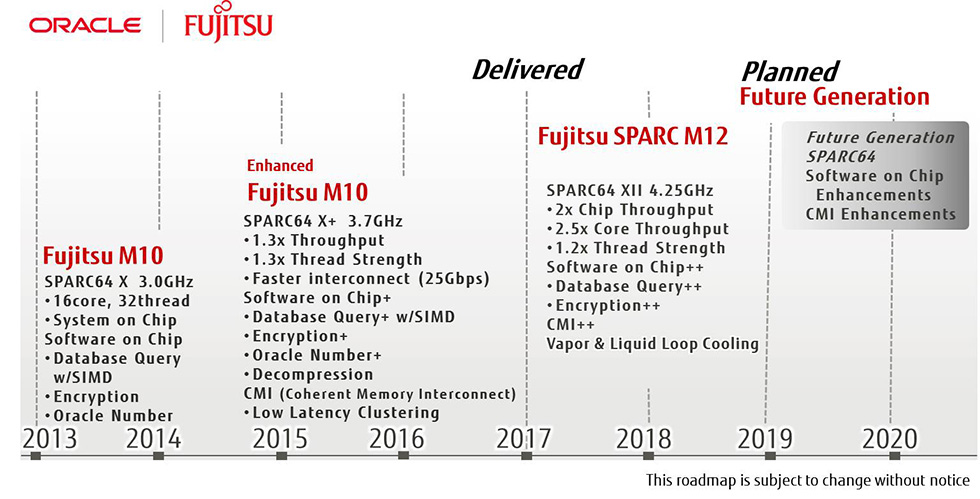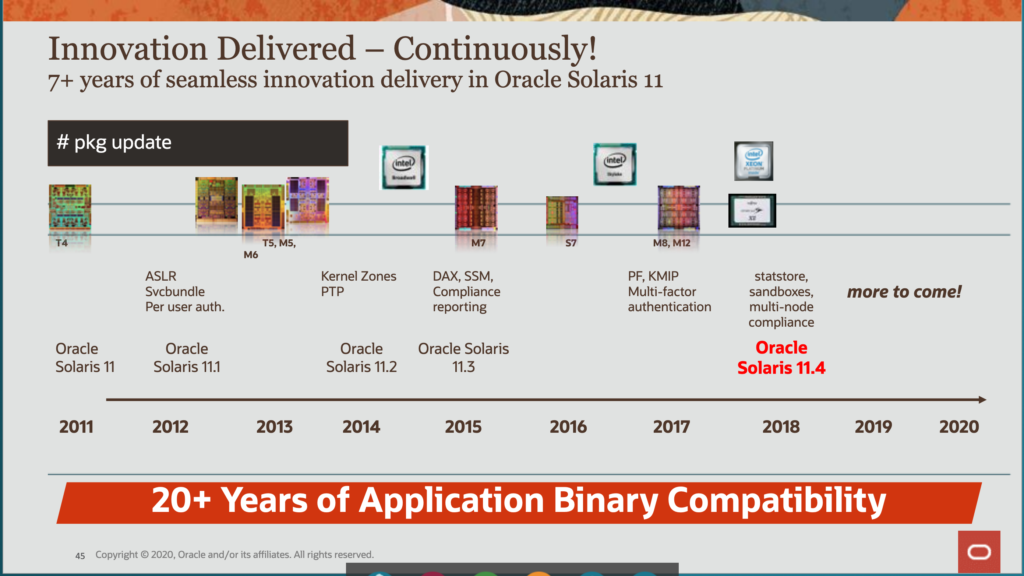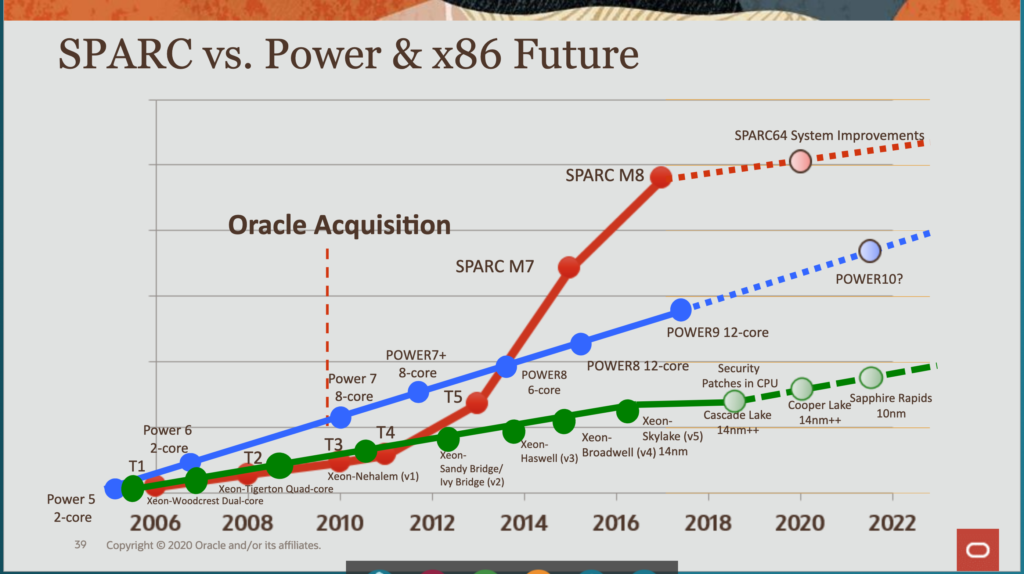Found for me a new behavior when installing 11.4… some commands are complaining about my locale setting…
root@t7zone01:~# pkg history Failed to set locale: unsupported locale setting. Falling back to C. pkg: Unable to set locale 'de_AT.UTF-8'; locale package may be broken or not installed. Reverting to C locale. pkg: 'ascii' codec can't encode character u'\xdf' in position 8: ordinal not in range(128) root@t7zone01:~# root@t7zone01:~# locale LANG=de_AT.UTF-8 LC_CTYPE="C" LC_NUMERIC="C" LC_TIME="C" LC_COLLATE="C" LC_MONETARY="C" LC_MESSAGES="C" LC_ALL= root@t7zone01:~# root@dbc01:~# ls /usr/share/locale/ C de.UTF-8 de_DE.ISO8859-15 en@boldquot en_US it pt_BR de de_DE de_DE.UTF-8 en@quot es ja zh_CN de.ISO8859-15 de_DE.ISO8859-1 en en@shaw fr ko zh_TW root@dbc01:~#
Where does that de_AT comes from? During the installation I said I want default “C” nothing else… and its not installed
I found that de_AT on my client! I am running my laptop/mac with de_AT.UTF-8… sitting in Vienna/Austria 😉
Well, Solaris 11.4 comes with OpenSSH, not SunSSH anymore
pressy@PRESSY-MBP:~ # nmap solaris11.3 -p 22 -A Starting Nmap 7.70 ( https://nmap.org ) at 2019-07-16 17:24 CEST Nmap scan report for 10.52.72.60 Host is up (0.0035s latency). PORT STATE SERVICE VERSION 22/tcp open ssh SunSSH 2.4 (protocol 2.0) | ssh-hostkey: | 1024 85:d6:64:af:f3:14:1e:4b:86:2a:da:a2:6b:ba:6e:c9 (DSA) |_ 2048 50:bd:1d:d5:98:72:3f:ae:5f:ab:d6:10:a0:aa:8d:82 (RSA) Service detection performed. Please report any incorrect results at https://nmap.org/submit/ . Nmap done: 1 IP address (1 host up) scanned in 1.62 seconds pressy@PRESSY-MBP:~ # pressy@PRESSY-MBP:~ # nmap solaris11.4 -p 22 -A Starting Nmap 7.70 ( https://nmap.org ) at 2019-07-16 17:25 CEST Nmap scan report for 10.52.72.201 Host is up (0.0042s latency). PORT STATE SERVICE VERSION 22/tcp open ssh OpenSSH 7.7 (protocol 2.0) | ssh-hostkey: | 2048 27:ae:7e:e7:5f:70:d0:eb:b9:71:61:f3:eb:c5:bf:7d (RSA) |_ 256 0e:4d:9a:5d:83:00:5d:26:03:e2:1f:8e:3a:2e:ed:f9 (ED25519) Service detection performed. Please report any incorrect results at https://nmap.org/submit/ . Nmap done: 1 IP address (1 host up) scanned in 0.62 seconds pressy@PRESSY-MBP:~ # pressy@PRESSY-MBP:~ # locale LANG="de_AT.UTF-8" LC_COLLATE="de_AT.UTF-8" LC_CTYPE="de_AT.UTF-8" LC_MESSAGES="de_AT.UTF-8" LC_MONETARY="de_AT.UTF-8" LC_NUMERIC="de_AT.UTF-8" LC_TIME="de_AT.UTF-8" LC_ALL= pressy@PRESSY-MBP:~ #
Found a little (for me “new”) settings in my ssh_config that was obviously ignored by SunSSH.
pressy@PRESSY-MBP:~ # grep SendEnv /etc/ssh/ssh_config SendEnv LANG LC_* pressy@PRESSY-MBP:~ #
OK -> many ways to fix it… but yes, that brought me to the point, how to install my “de_AT” on Solaris 11.4…
root@t7zone01:~# svccfg -s svc:/system/environment:init listprop environment/LANG environment/LANG astring C root@t7zone01:~# nlsadm get-timezone timezone=Europe/Vienna root@dbc01:~# pkg search -r de_AT.UTF-8 Failed to set locale: unsupported locale setting. Falling back to C. pkg: Unable to set locale 'de_AT.UTF-8'; locale package may be broken or not installed. Reverting to C locale. pkg: 'ascii' codec can't encode character u'\xdf' in position 8: ordinal not in range(128) root@dbc01:~# export LC_ALL=C root@dbc01:~# pkg search -r de_AT.UTF-8 INDEX ACTION VALUE PACKAGE basename link usr/share/sysconfig/help/de_AT.UTF-8 pkg:/system/install/configuration@11.4-11.4.10.0.1.3.0 basename link usr/share/locale/de_AT.UTF-8 pkg:/system/locale@11.4-11.4.9.0.1.4.0 basename file usr/lib/locale/de_AT.UTF-8/de_AT.UTF-8 pkg:/system/locale@11.4-11.4.9.0.1.4.0 root@dbc01:~# nlsadm install-locale de_AT.UTF-8 Reading package information from IPS publisher's repository (this may take awhile) ... Locale(s) to install: de_AT.ISO8859-15 de_AT.ISO8859-1 de_AT.UTF-8 Facet(s) to change: facet.locale.de_AT Additional locales need to be also installed due to the structure of packaging. Add the locales to the command argument or run with '-f/--force' option to install additional locales root@dbc01:~# root@dbc01:~# nlsadm install-locale -f de_AT.UTF-8 de_AT.ISO8859-1 de_AT.ISO8859-15 Reading package information from IPS publisher's repository (this may take awhile) ... Locale(s) to install: de_AT.ISO8859-15 de_AT.ISO8859-1 de_AT.UTF-8 Facet(s) to change: facet.locale.de_AT Updating installed packages and facets (this may take awhile) ... Done root@dbc01:~#
YES -> that’s it…
BUT….. oh my god… english/german mix on my cli:
root@dbc01:~# pkg history -n 2 START OPERATION CLIENT OUTCOME 2019-07-15T15:06:48 install pkg Erfolgreich 2019-07-16T09:55:12 change-facet pkg Erfolgreich
OK -> so I removed my ssh_config setting on my mac 😉
Have FUN!



